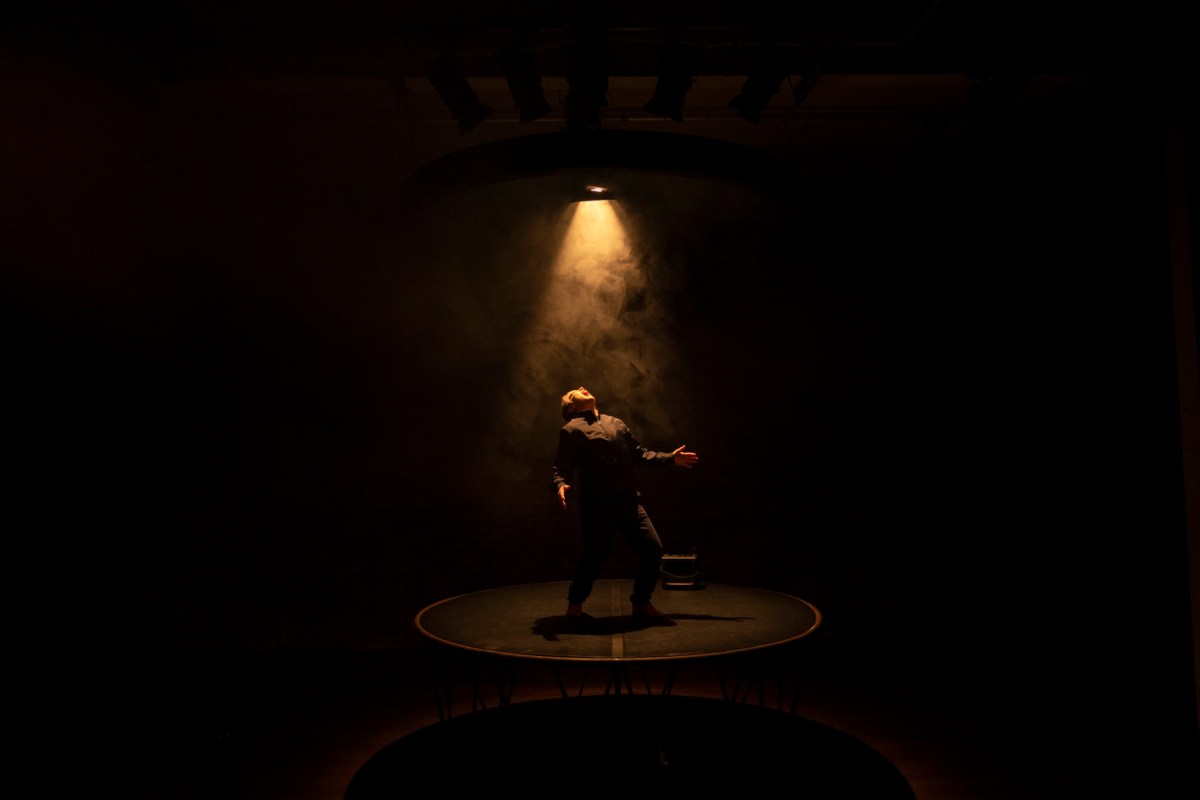The scourge of domestic abuse in this country has long been due a proper reckoning. This requires bringing it out of the shadows, where it thrives, and into the light of day – and the spotlights of the theatre – so we can inspect its ugliness and know its truths.
But how to make this difficult topic work theatrically is a challenge. Who gets to tell stories and what stories we tell reveal a great deal about power dynamics – and the power dynamics of patriarchy are intertwined with the prevalence of domestic abuse: a problem that is nearly always perpetuated by men against women.
One solution is to purposefully elevate victims’ stories. In Dennis Kelly’s Girls & Boys (staged by Melbourne Theatre Company in 2022 and starring Nikki Shiels – also a one-woman show) the story is focused on a woman. The true horror of the final result of the family violence perpetrated in that story by this woman’s husband only becomes clear at the end, and the red flags of abuse she experiences in their relationship – that of coercive control – are relayed, not played.
But how can we come to understand how boys become men who become abusers? How do we tell that story?
BAD BOY was co-created by writer Patricia Cornelius with director and long-time collaborator Susie Dee and actor, theatre-maker and circus artist Nicci Wilks, and performed at Melbourne’s fortyfivedownstairs. The story is centred on a man, Will, performed oh-so-gloriously by a woman playing a man, Wilks.
Read: The 60-somethings ruling the roost this Melbourne Fringe
At the opening of the play, Wilks turns towards the audience, her face painted white, her cheeks two points of red, her upper lip sporting a fake black mustache. She is a clownish caricature of a bad boy, spouting misogynistic bile. She turns, wipes her make-up off, and she becomes William. An ordinary bloke.
The tension of BAD BOY is between the ordinary and performative – the stories we tell ourselves of the ‘bad boy’, the big bad wolf, and the sheer banality and tragic ubiquity of domestic abuse in a country where one in four women experiences it.
The action of the play is performed upon a raised circular stage, the audience intimately wrapping around the stage on three sides. A range of floor-set mics, cross-lights and overhead spots allows for a range of lighting states – highlighting tiny moments, helping to shift the energy and, at one point, allowing for Wilks’ shadow to be cast six-fold across the brick-wall drop upstage: drawing the link between the character’s story, and the multitude of ordinary men who share it.
A circular LED scroller is suspended above the stage; red words move periodically across the display, dividing the performance into chapter-like sections. It’s a device that works sometimes, and at other times feels unnecessary (particularly when the performance renders the textual signifier redundant).
We see William measuring dicks with strangers at pubs, rumbling for a fight, taking up space as he dances – performing the ordinary acts of white, male Western privilege in a patriarchy. In a moment that made this reviewer’s heart sink at the utterly ordinary tragedy of it (and reminiscent of Claire Keegan’s novella Small Things Like These), he tells us how he first learned that women are worth less than men from seeing how his mother’s voice mattered less than his father’s, how his mother was treated without respect in the home.
His encultured misogyny plays out when he meets a girl, bowled over by nothing but her smile and good looks. His ardency manages to bridge the gap that is their lack of anything in common, as a shared giggle and a declaration of love lead to them starting a relationship. As the honeymoon period wears off, the cracks of jealousy soon start to appear and he begins to control her behaviour – who she goes out with, what time she comes home, whether she goes out at all.
A cycle begins – coercive control, blow-up, calling of the police, pleading and bargaining. The failure of our systems to help victims of domestic abuse is played out in a tiny but significant exchange Will has when the police visit for the third time. He says they’re in danger of becoming best friends if this keeps up. At the blatant admission that this won’t stop – he’ll keep doing what he’s doing to his partner, no matter how many times the police show up – one of them cracks a smile. Will sees it, and knows he has an ally.
Cornelius and Dee are no strangers to dealing with thorny cultural topics – Cornelius was co-founder of Melbourne Workers Theatre, co-authored Who’s Afraid of the Working Class? and in 2019 the pair were invited to the Venice Biennale to present two plays, Shit and Love, in which Wilks also performed.
BAD BOY deals with this difficult – but so disgracefully common – feature of our society in a powerful one-woman performance that lays bare the sickening ordinariness of domestic abuse. The writing is lyrical, and evokes a modern Banjo Paterson-like rhythm, situating Bad Boy as contemporary epic poem, a tragedy of Aussie toxic masculinity.
Read: Book review: The Burrow, Melanie Cheng
But Wilks – Wilks is nothing short of extraordinary. And her performance – physically embodied in a way that only a performer with an arsenal of physical theatre skills bursting out of every muscle and membrane can muster – is a true act of defiance.
A must see.
BAD BOY
fortyfivedownstairs
Co-Creator and Writer: Patricia Cornelius
Co-Creator and Director: Susie Dee
Co-Creator and Performer: Nicci Wilks
Set and Costume Designer: Romanie Harper
Composer and Sound Designer: Kelly Ryall
Lighting Designer: Jenny Hector
Production/Stage Manager: Harry Dowling
Movement Consultant: Michelle Heaven
Promotional image: Ponch Hawkes
Tickets: $39-$48
BAD BOY will be performed until 13 October 2024. It’s presented in association with Melbourne Fringe as part of the Festival’s Pulse Program.





